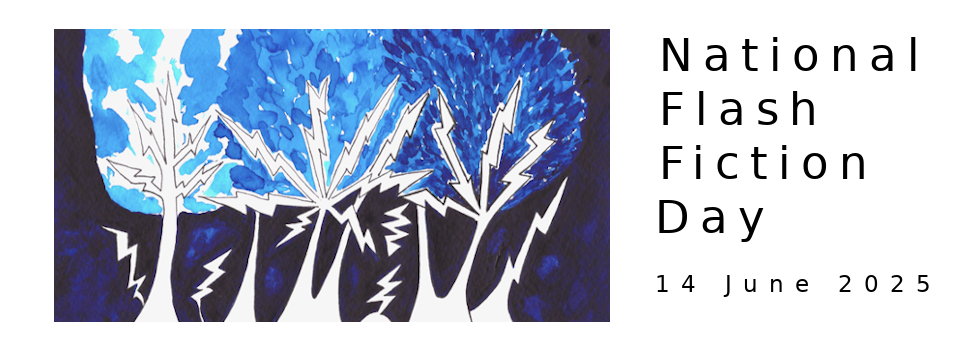Welcome to the third in our series of interviews with this year's National Flash Fiction Day Anthology Editors and Microfiction Competition Judges! Submissions for the Anthology and Microfiction Competition are open until 15 February 2024 and we'll be posting weekly interviews over the next four weeks.
This week, NFFD's Diane Simmons chats with , one of this year's NFFD Microficiton Competition Judges, about everything from favourite books to first flashes to her advice to those entering the 2024 Microfiction Competition....
 DS: Firstly, thank you for agreeing to be a micro fiction judge this year. You won the competition in 2022 with your flash ‘Just a Word to the Snowblind’ and were Highly Commended in 2023 with ‘The Fate of Small Creatures’. Do you have any tips for entrants to this year’s competition?
DS: Firstly, thank you for agreeing to be a micro fiction judge this year. You won the competition in 2022 with your flash ‘Just a Word to the Snowblind’ and were Highly Commended in 2023 with ‘The Fate of Small Creatures’. Do you have any tips for entrants to this year’s competition?
JK: I love the NFFD comp, so I’m delighted and excited to be a co-judge this year, though I should say that as well as winning and getting highly commended, I’ve also stalled on the short-list and got nowhere twice, so that’s all bases covered then! Tip wise, I think that when writing a successful drabble, it’s important to experiment with every tool available since wordcount is so constrained. Each word should earn its place, but more than that, each word should aim to be optimal - not only with reference to meaning, but also rhythm, pace, the way it sounds in context, the musicality of the syllables and phonemes and how collectively the words flow when read out loud. And writers could think about controlling the white spaces on the page and the beats of silence between words and sentences. Even punctuation can enhance constrained storytelling if used in ingenious and compelling ways.
DS: Can you remember where you first heard about flash? Do you remember any early flashes you read that left an impression on you?
JK: It was in 2015 doing a course called, ‘An Introduction to Creative Writing’ at the Open University. My tutor had us drafting 300-word stories, and though flash wasn’t the universally used term it is today (it was also known as short-short stories and brief fiction back then), whatever it was called, I became obsessed. I searched the internet to find out more and found the fabulous on-line litzine, The Molotov Cocktail | A PROJECTILE FOR INCENDIARY FLASH FICTION where I loved everything, especially flashes by Aeryn Rudel, and also Smokelong Quarterly where I read a story that has haunted me ever since called, ‘The Sadness of Spirits’ by Aimee Pogson. Here’s the link if you’d like to be haunted too: The Sadness of Spirits - SmokeLong Quarterly.
DS: You can only take one book (that you have already read) on a long train journey. What would it be?
JK: The Sea, The Sea by Iris Murdoch. I love everything about this book: the form of the story; the unreliable narrator; the exquisite language; the undercurrents of magical realism, especially when they seep to the surface; and the wild and isolated sea-cliff setting - a landscape that provides a looming narrative presence throughout. It’s a story I never stop reading.
DS: Your novella-in-flash ‘A Learning Curve’ won the Bath flash fiction NIF competition in 2023 and Northodox Press have announced that they'll be publishing your short story collection in 2025. I’m guessing you dedicate a great deal of time to writing and I wondered if you have a daily writing routine.
JK: Ha! I’d love a daily writing routine, but in reality, I more carve out time around family and caring commitments so no two days are the same. But I do try to write, or edit, or provide feedback to writing buddies every day. For me, writing is a joy, a therapy and a gift, and I hope everyone who enters the comp this year has something like fun crafting their entries.
